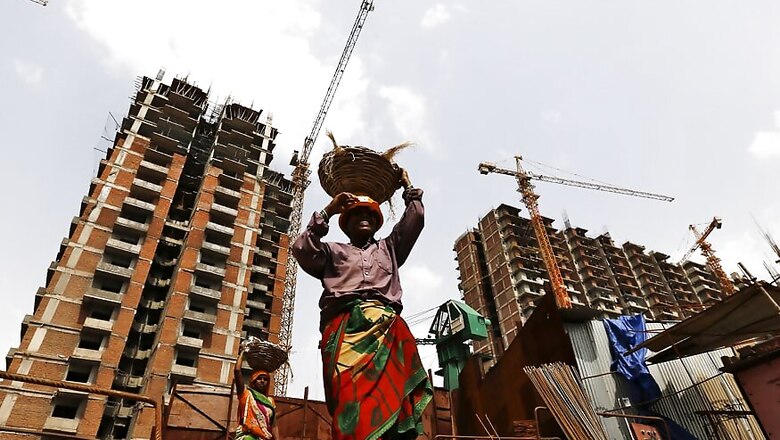
views
Washington Asserting that India's growth rate is more a product of its 29 chief ministers, a top American think-tank on Tuesday said that states do not feel the pressure or urgency to take important steps to revive the economy.
Weeks after the International Monetary Fund (IMF) slashed India's growth rate projections for the year 2019 to 6.1 per cent from its previous growth forecast of 7.3 per cent, the Center for Strategic and International Studies (CSIS) said that precious little attention is paid to the role India's state leaders must play in facilitating growth.
Most of the areas where economic reforms are most pressing are primarily controlled by India's state leaders. So instead of focusing solely on a 'Modi Plan' for growth, we should also be pressing for the 'Fadnavis Plan', the 'Yeddyurappa Plan', the 'Nath Plan', and the 'Adityanath Plan' for an economic resurgence, Richard M Rossow, senior adviser and Wadhwani Chair in US-India Policy Studies at CSIS said.
In an op-ed released on Tuesday, Rossow said state governments have primary control over many potential levers for growth. These include: the issuance of most industrial licenses; control over various inspections that can cripple productivity when abused; pricing and availability of electric power; and pricing and availability of clean water and effluent disposal.
Other potential levers of growth include building most infrastructure; land clearances for industrial development; labour regulation and policy continuity, he said.
States can be leaders in sparking growth by taking significant steps to expand access to quality infrastructure, cut unnecessary licenses, make land acquisition a transparent and straightforward process, and more, he wrote.
"But states clearly do not feel the pressure or urgency to take important steps to revive the economy, and often lack the will and administrative capacity to ensure effective regulationseven when enacted on paperare carried out in practice," he alleged.
Asserting that the Modi government still has a crucial role to play in setting in motion reforms that will help India's long-term growth, he said one step from the central government has an impact across India.
When thinking of India, most of the world focuses exclusively on the central government. But that is only a part of the Indian economic landscape, he said.
Collectively, India's 29 state leaders have a much more profound influence on the practicalities of doing business in the country. When we look for new reform ideas to spark growth in India, states must step up and become part of the solution, Rossow said.



















Comments
0 comment